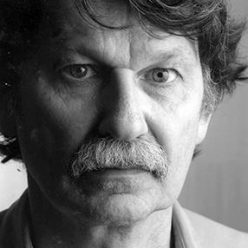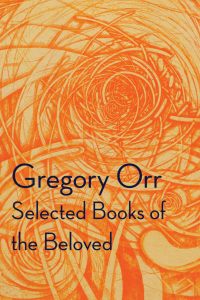 Selected Books of the Beloved
Selected Books of the Beloved
Publication August 2022
For more than a decade, Gregory Orr has been writing toward “the Book:” an imagined tome containing every poem and song ever written. Drawing from a rich tradition of lyric poetry, Collected Beloved is the culmination of that project, and more—it is a celebration of the transformative power of poetry, and of our extraordinary capacity to feel and to love. Mary Oliver wrote of the poet: “He speaks now, in these many short poems, which in their entirety are really one long poem, of mysteries, of those things –emotions, situations, mind and heart states–which are beyond the definitive.”
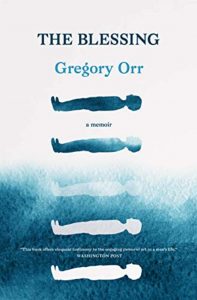 The Blessing: A Memoir Hailed on its original publication as “eloquent testimony to the engaging power of art in a man’s life” (Washington Post), this deeply moving memoir, long out of print, is reissued with an illuminating new afterword. When acclaimed poet Gregory Orr was twelve years old, he shot and killed his brother in a hunting accident. From the immediate aftermath—a period of shock, sadness, and isolation—it quickly became clear that support and guidance would not be coming from his distant mother. Nor would it come from his father, a philandering country doctor addicted to amphetamines. Left to his own devices, the boy suffered.
The Blessing: A Memoir Hailed on its original publication as “eloquent testimony to the engaging power of art in a man’s life” (Washington Post), this deeply moving memoir, long out of print, is reissued with an illuminating new afterword. When acclaimed poet Gregory Orr was twelve years old, he shot and killed his brother in a hunting accident. From the immediate aftermath—a period of shock, sadness, and isolation—it quickly became clear that support and guidance would not be coming from his distant mother. Nor would it come from his father, a philandering country doctor addicted to amphetamines. Left to his own devices, the boy suffered.
Guilt weighed on him throughout a childhood split between the rural Hudson Valley and jungles of Haiti. As a young man, his feelings and a growing sense of idealism prompted him to activism in the civil rights movement, where he marched and was imprisoned, and then scarred again by a terrifying abduction. Eventually, Orr’s experiences led him to understand that art, particularly poetry, could work as a powerful source of healing and meaning to combat the trauma he carried.
Throughout The Blessing, Orr articulates his journey in language as lyrical as it is authentic, gifting us all with a singular tale of survival, and of the transformation of suffering into art.
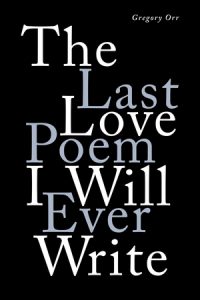 The Last Love Poem I Will Ever Write, 2019
The Last Love Poem I Will Ever Write, 2019
An eminent lyric poet at the top of his form writes indelibly of grief and love.
In his twelfth volume, “master of the lyric poem” (Paris Review) Gregory Orr returns with a passionate exploration of the forces that shape us. Moving from personal trauma (“Song of What Happens”) to public catastrophe (“Charlottesville Elegy”), Orr seeks innovative ways for the imagination to respond to and create meaning out of painful experiences, while at the same time rejoicing in love and language.
The Last Love Poem I Will Ever Write engages the deepest existential issues with wisdom and humor and transforms them into celebratory song.
 A Primer for Poets and Readers of Poetry, 2018
A Primer for Poets and Readers of Poetry, 2018
A Primer for Poets and Readers of Poetry guides the young poet toward a deeper understanding of how poetry can function in his or her life, while also introducing the art in an exciting new way. Using such poems as Theodore Roethke’s “My Papa’s Waltz” and Robert Hayden’s “Those Winter Sundays,” the Primer encourages young writers to approach their “thresholds”—those places where disorder meets order, where shaping imagination can turn language into urgent and persuasive poems. It provides the poet with more than a dozen focused writing exercises and explains essential topics such as the personal and cultural threshold; the four forces that animate poetic language (naming, singing, saying, imagining); tactics of revision; ecstasy and engagement as motives for poetry; and how to locate and learn from our personal poetic forebears.
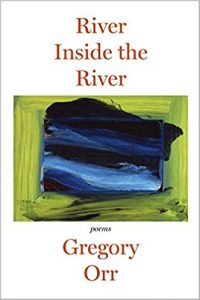 River Inside The River, 2013
River Inside The River, 2013
From the acclaimed American poet whose work the San Francisco Review called “mystical, carnal, reflective, wry” come three gorgeous poetic sequences. In the first, “Eden and After,” Gregory Orr retells the story of Adam and Eve. The second sequence, “The City of Poetry,” evokes and explores a visionary metropolis where “every poem is a house, and every house a poem.” The final sequence, “River Inside the River,” focuses on redemption through the mysterious power of language to resurrect the beloved and recover what is lost. River Inside the River combines Orr’s characteristic spirituality and meditative lyricism with storytelling and myth-making. These are poems that will sustain, console, and give hope, from a poet at the height of his powers.
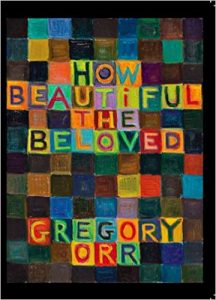 How Beautiful The Beloved, 2009
How Beautiful The Beloved, 2009
Gregory Orr explores the carnal ache of living and loving in this equable, full-bodied and flowing collection. Through his concise, perfectly formed poems, he wakes us to the ecstatic possibilities of recognizing and risking love, of pain transformed to beauty. His central message is joy—the urge to say yes—with each poem revealing a brief moment of happiness or longing, another moment of living in the arms of the beloved. How Beautiful the Beloved chronicles not only the body of the beloved but also his or her mind, heart, and totality. Orr writes, “Not many of them, it’s true, / But certain poems / … bring us back / Always to the beloved.”
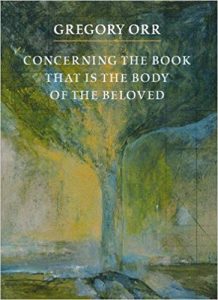 Concerning the Book That Is the Body of the Beloved, 2005
Concerning the Book That Is the Body of the Beloved, 2005
Concerning the Book That Is the Body of the Beloved is an incantatory celebration that pushes the ecstatic lyric into epic realms. Gregory Orr discovers the Beloved in everything, everywhere, and reconnects us—in the tradition of Rumi and Hafiz—to our emotional lives. Orr’s ambitious and visionary lyrics explore every dimension of what it is to be human, and this imagined “Book” is a dynamic repository of expressive forms that tells humanity’s stories.
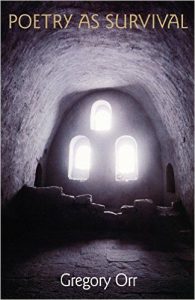 Poetry As Survival, 2003
Poetry As Survival, 2003
Gregory Orr draws from a generous array of sources. He weaves discussions of work by Keats, Dickinson, and Whitman with quotes from three-thousand-year-old Egyptian poems, Inuit songs, and Japanese love poems to show that writing personal lyric has helped poets throughout history to process emotional and experiential turmoil, from individual stress to collective grief. More specifically, he considers how the acts of writing, reading, and listening to lyric bring ordering powers to the chaos that surrounds us. Moving into more contemporary work, Orr looks at the poetry of Sylvia Plath, Stanley Kunitz, and Theodore Roethke, poets who relied on their own work to get through painful psychological experiences.
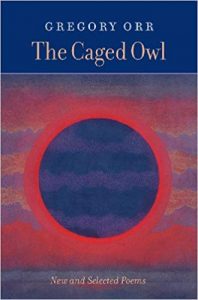 The Caged Owl, 2003
The Caged Owl, 2003
Gregory Orr’s lyric genius transforms trauma into art. When he writes of his responsibility for a brother’s death or being jailed during a civil rights struggle, overwhelming emotions are distilled and shaped into incisive poems. “It starts with love and death,” Orr has said, “love poetry and lament poetry have survival value for the poet. It’s that simple.”
The Caged Owl surveys Orr’s distinguished thirty-year career, and includes new work along with the best poems from his previous seven volumes.
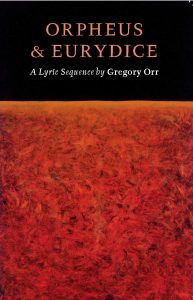 Orpheus and Eurydice, 2001
Orpheus and Eurydice, 2001
“How can I celebrate love / now that I know what it does?” So begins this book-length lyric sequence which reinhabits and modernizes the story of Orpheus, the mythic master of the lyre (and father of poetry) and Eurydice, his lover who died and whom Orpheus tried to rescue from Hades. Gregory Orr’s spare, elegant verse brilliantly tells the story. The book design received the Certificate of Merit for Internal Design from Bookbuilders West.
